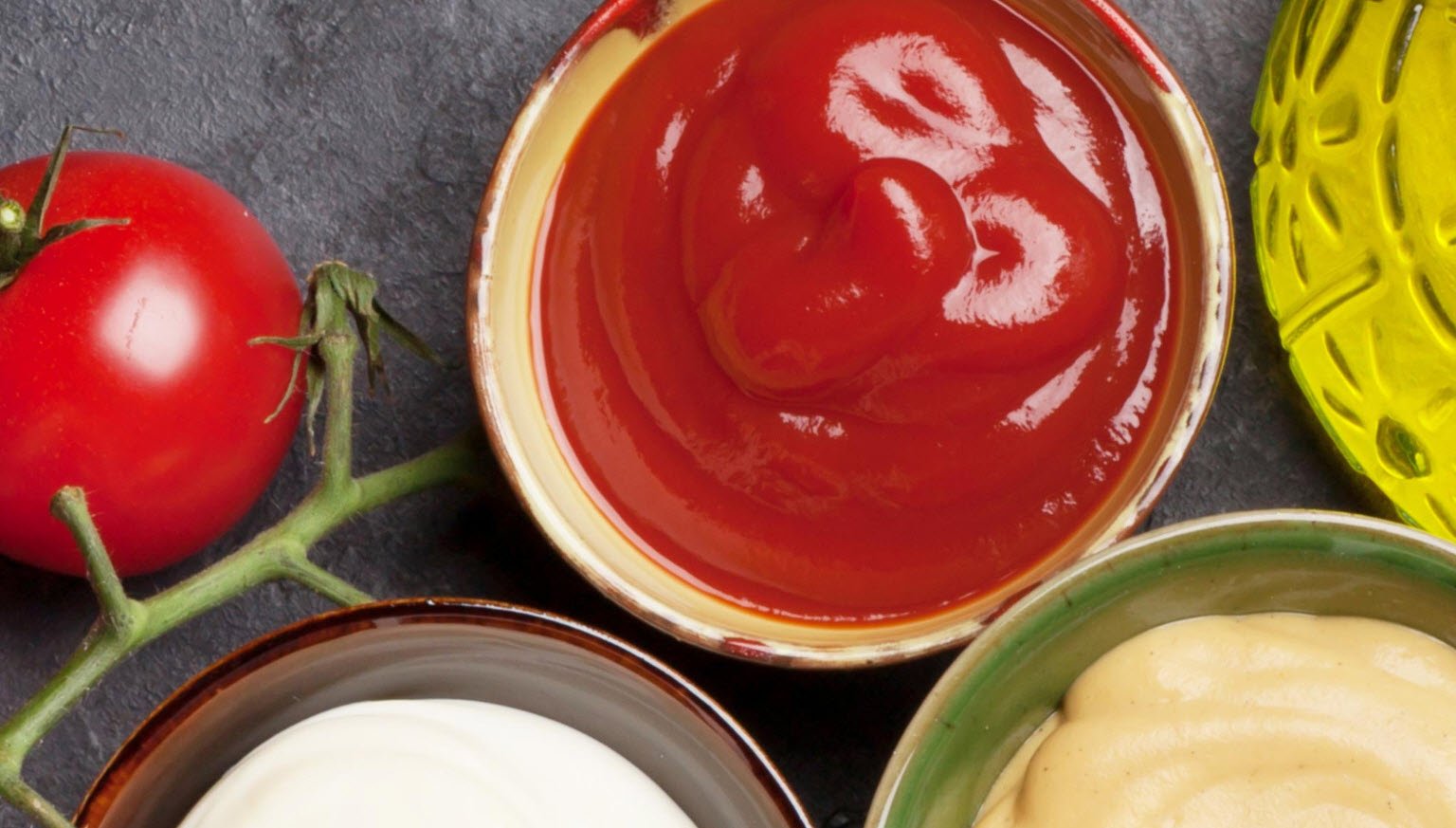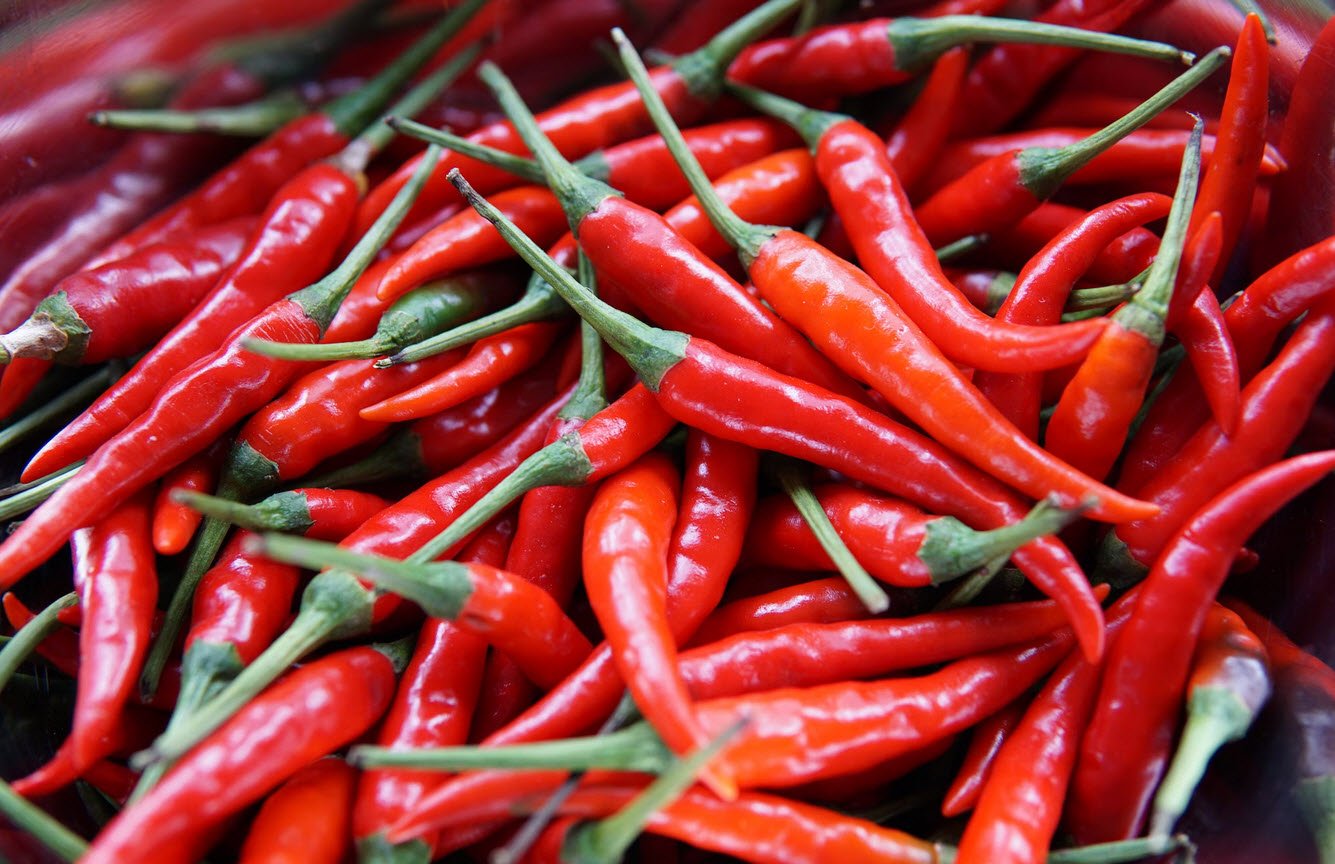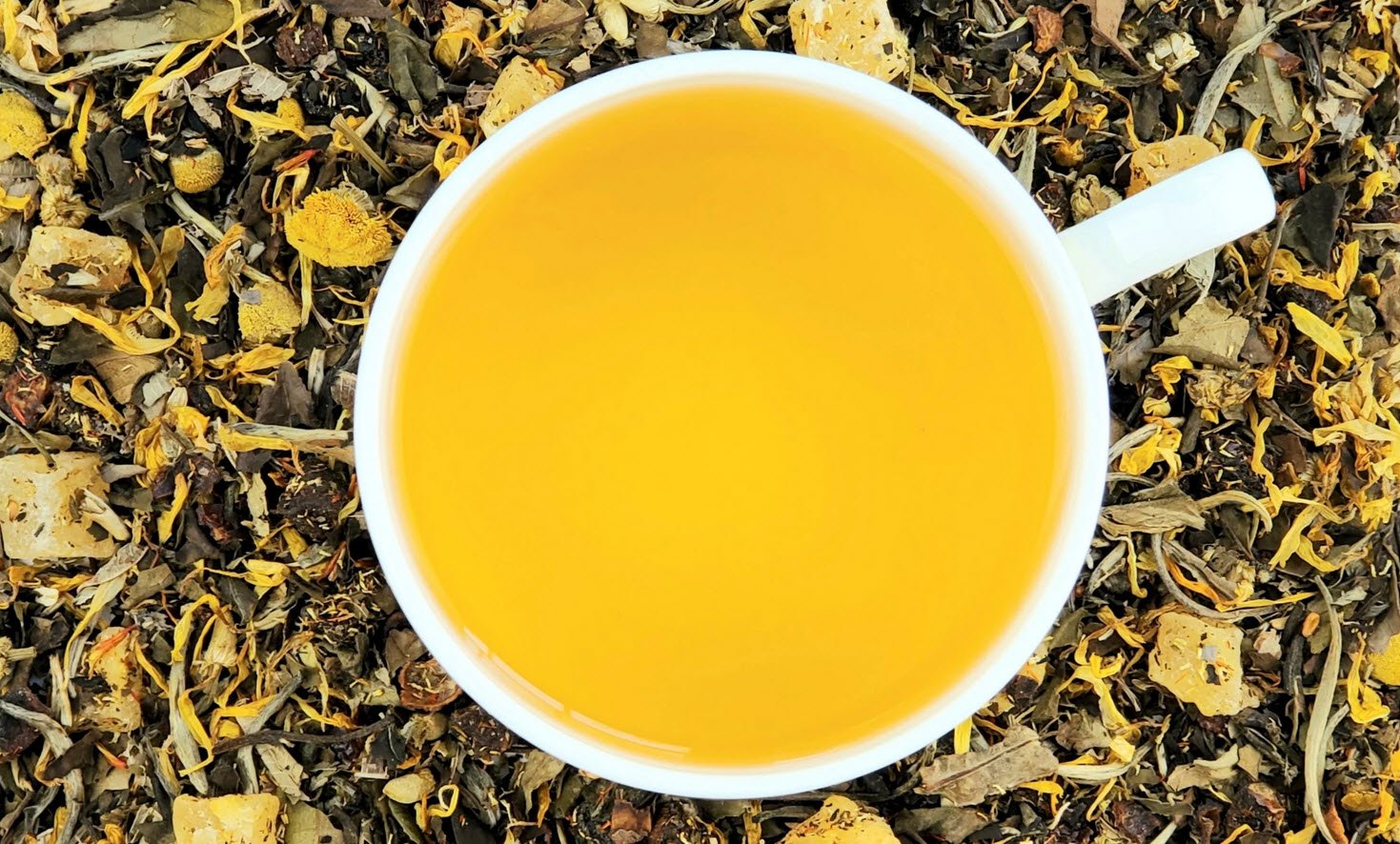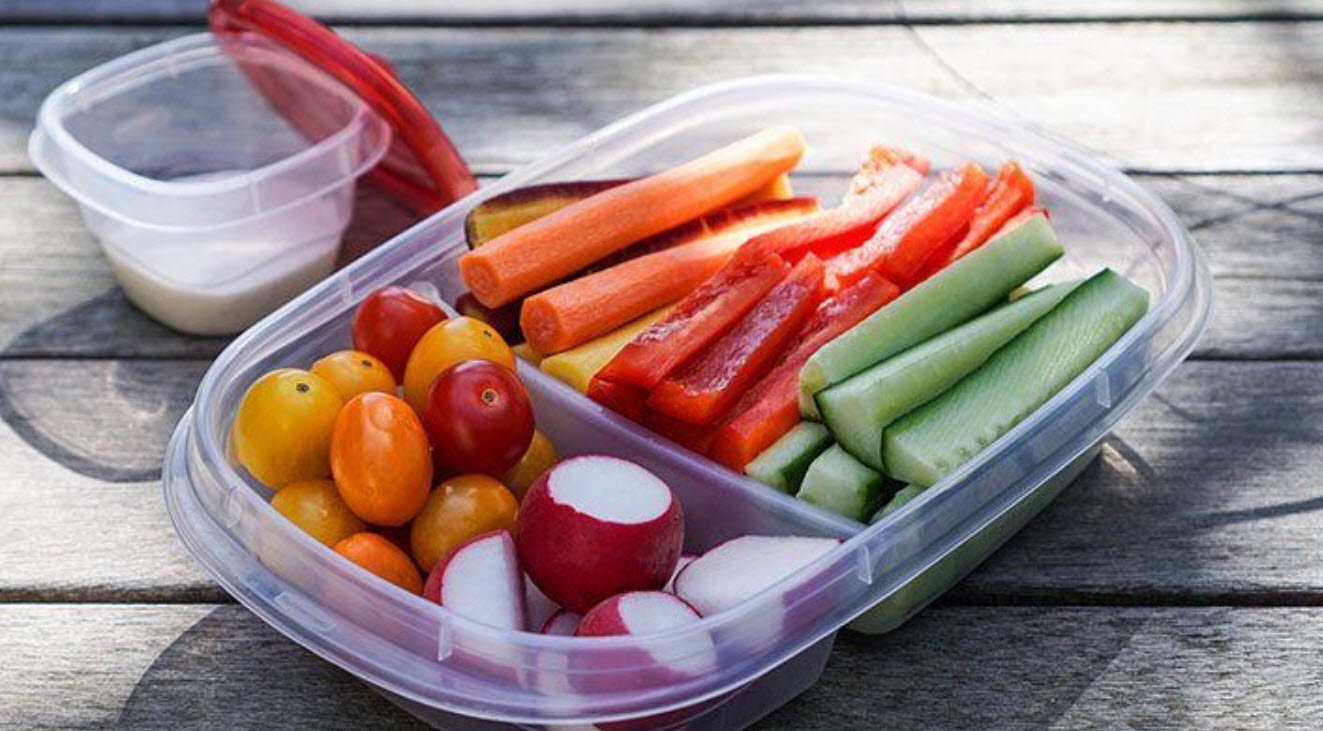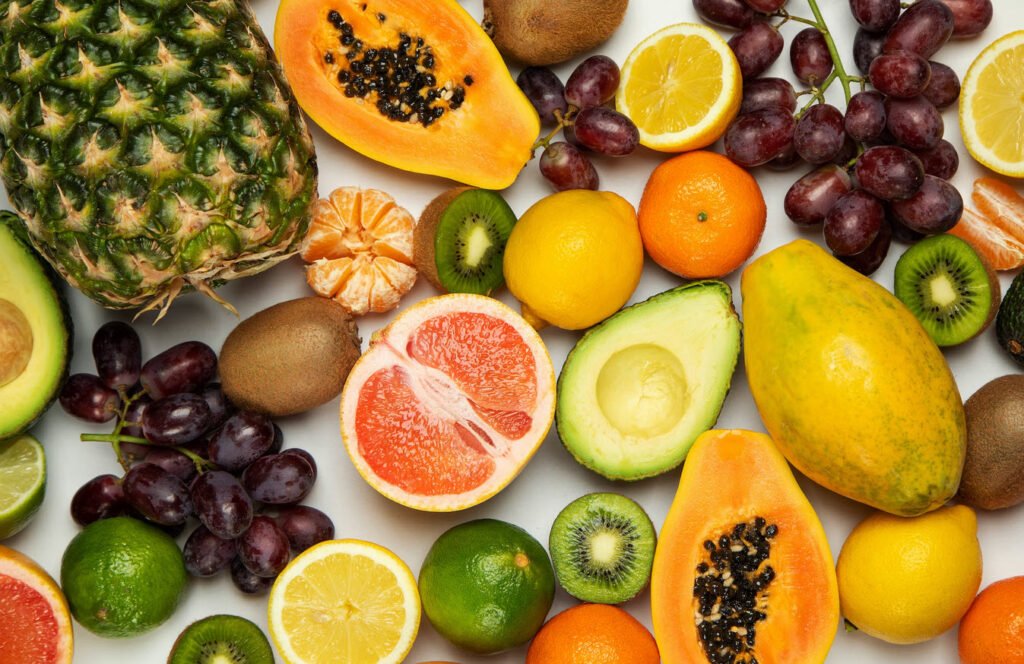
Common fruits include apples, bananas, oranges, grapes, strawberries, blueberries, raspberries, pineapples, mangoes, peaches, plums, kiwis, melons, pears, cherries, and grapefruits. These fruits are widely available in grocery stores and markets around the world, and are often consumed fresh as a healthy snack or used in various recipes.
Apples and bananas are two of the most popular fruits, known for their versatility and nutritional benefits. Oranges and grapefruits are citrus fruits that are high in vitamin C, while berries are packed with antioxidants and other beneficial nutrients.
| Fruits | Sugar (G/100g) |
| Grapes | 18.1g |
| Banana | 15.6g |
| Mango | 14.8g |
| Apples | 13.3g |
| Pineapple | 11.9g |
| Kiwi | 10.5g |
| Pear | 10.5g |
| Apricots | 9.3g |
| Orange | 9.2g |
| Watermelon | 9.0g |
| Cantaloupe Melon | 8.7g |
| Peach | 8.7g |
| Nectarine | 8.5g |
| Honeydew Melon | 8.2g |
| Blackberries | 8.1g |
| Plum | 7.5g |
| Blueberries | 7.3g |
| Strawberries | 5.8g |
| Lemon | 2.5g |
| Avocado | 0.9g |
| Lime | 0.4g |
Grapes – 18.1g
Grapes contain approximately 18.1g of sugar per serving, which is relatively high compared to some other fruits. However, they are also rich in antioxidants and other beneficial nutrients, such as vitamins C and K. While it’s important to monitor sugar intake, consuming grapes in moderation as part of a balanced diet can provide numerous health benefits.
Banana – 15.6g
A medium-sized banana typically weighs around 118 grams and contains approximately 14 grams of sugar. The sugar in bananas comes in the form of fructose, glucose, and sucrose. While bananas are a good source of fiber, vitamins, and minerals, they should still be consumed in moderation as they are relatively high in natural sugars.
Mango – 14.8g
A medium-sized mango typically weighs around 200 grams and contains approximately 29 grams of sugar. The sugar in mangoes comes in the form of fructose and glucose. Mangoes are also a good source of fiber, vitamins, and minerals. While they are high in natural sugars, they can be a healthy addition to a balanced diet when consumed in moderation.
Apples – 13.3g
A medium-sized apple typically weighs around 182 grams and contains approximately 19 grams of sugar. The sugar in apples comes in the form of fructose and glucose. Apples are also a good source of fiber, vitamins, and minerals. They are a healthy snack option and can be enjoyed as part of a balanced diet.
Pineapple – 11.9g
A cup of chopped pineapple typically weighs around 165 grams and contains approximately 16 grams of sugar. The sugar in pineapples comes in the form of a mixture of fructose, glucose, and sucrose. Pineapples are also a good source of fiber, vitamins, and minerals. They can be a healthy addition to a balanced diet, but should be consumed in moderation due to their natural sugar content.
Kiwi – 10.5g
A medium-sized kiwi typically contains around 6 grams of sugar, which comes in the form of fructose and glucose. Kiwis are a good source of fiber, vitamin C, and other nutrients, making them a healthy addition to a balanced diet.
Pear – 10.5g
A medium-sized pear typically contains around 17 grams of sugar, which comes in the form of fructose and glucose. Pears are also a good source of fiber, vitamins, and minerals. They are a healthy snack option and can be enjoyed as part of a balanced diet.
Apricots – 9.3g
Three apricots typically contain around 9 grams of sugar, which comes in the form of fructose and glucose. Apricots are also a good source of fiber, vitamins, and minerals. They can be a healthy addition to a balanced diet, but should be consumed in moderation due to their natural sugar content.
Orange – 9.2g
A medium-sized orange typically contains around 12 grams of sugar, which comes in the form of fructose and glucose. Oranges are also a good source of fiber, vitamin C, and other nutrients. They can be a healthy snack option and are often recommended for their immune-boosting properties.
Watermelon – 9.0g
A cup of diced watermelon typically contains around 9 grams of sugar, which comes in the form of fructose. Watermelon is also a good source of vitamins A and C, as well as other nutrients. It can be a refreshing and healthy snack option, especially in the summertime.
Cantaloupe Melon – 8.7g
A cup of diced cantaloupe typically contains around 8 grams of sugar, which comes in the form of fructose. Cantaloupe is also a good source of vitamins A and C, as well as other nutrients. It can be a healthy and refreshing snack option, especially in the summer months.
Peach – 8.7g
A medium-sized peach typically contains around 13 grams of sugar, which comes in the form of fructose and glucose. Peaches are also a good source of fiber, vitamins, and minerals. They can be a healthy snack option and are often enjoyed during the summer season.
Nectarine – 8.5g
Typically, a medium-sized nectarine has 11 grams of sugar, mostly in the form of fructose and glucose. Additionally a good source of fibre, vitamins, and minerals are nectarines. They can be a nutritious snack choice and are frequently eaten in the summer.
Honeydew Melon – 8.2g
Honeydew melon contains 8.2g of sugar per 100g of fruit. Sugar in fruits is a natural sugar called fructose, which provides energy for the body. Fruits also contain fiber, vitamins, and antioxidants, making them a healthy addition to a balanced diet.
Blackberries – 8.1g
Blackberries contain 8.1g of sugar per 100g of fruit. This sugar is natural and comes in the form of fructose, which provides energy for the body. Blackberries are also a good source of fiber, vitamins, and antioxidants, making them a nutritious addition to a healthy diet.
Plum – 7.5g
Plums contain 7.5g of sugar per 100g of fruit. The sugar in fruits like plums is natural and comes in the form of fructose, which provides energy for the body. Plums are also a good source of fiber, vitamins, and minerals, making them a nutritious choice for a healthy diet.
Blueberries – 7.3g
Blueberries contain 7.3g of sugar per 100g of fruit. The sugar in fruits like blueberries is natural and comes in the form of fructose, which provides energy for the body. Blueberries are also rich in fiber, vitamins, and antioxidants, making them a healthy and delicious addition to a balanced diet.
Strawberries – 5.8g
Strawberries contain 5.8g of sugar per 100g of fruit. The sugar in fruits like strawberries is natural and comes in the form of fructose, which provides energy for the body. Strawberries are also a good source of fiber, vitamins, and antioxidants.
Lemon – 2.5g
Lemons contain 2.5g of sugar per 100g of fruit. The sugar in fruits like lemons is natural and comes in the form of fructose, which provides energy for the body. Lemons are also rich in vitamin C and antioxidants, making them a healthy addition to a balanced diet.
Avocado – 0.9g
Avocado contains 0.9g of sugar per 100g of fruit. The sugar in fruits like avocados is natural and comes in the form of fructose, which provides energy for the body. Avocado is also a good source of healthy fats, fiber, vitamins, and minerals, making it a nutritious addition to a balanced diet.
Lime – 0.4g
Limes contain 0.4g of sugar per 100g of fruit. The sugar in fruits like limes is natural and comes in the form of fructose, which provides energy for the body. Limes are also rich in vitamin C and antioxidants, making them a healthy addition to a balanced diet. They are commonly used for flavoring in various dishes and drinks.

